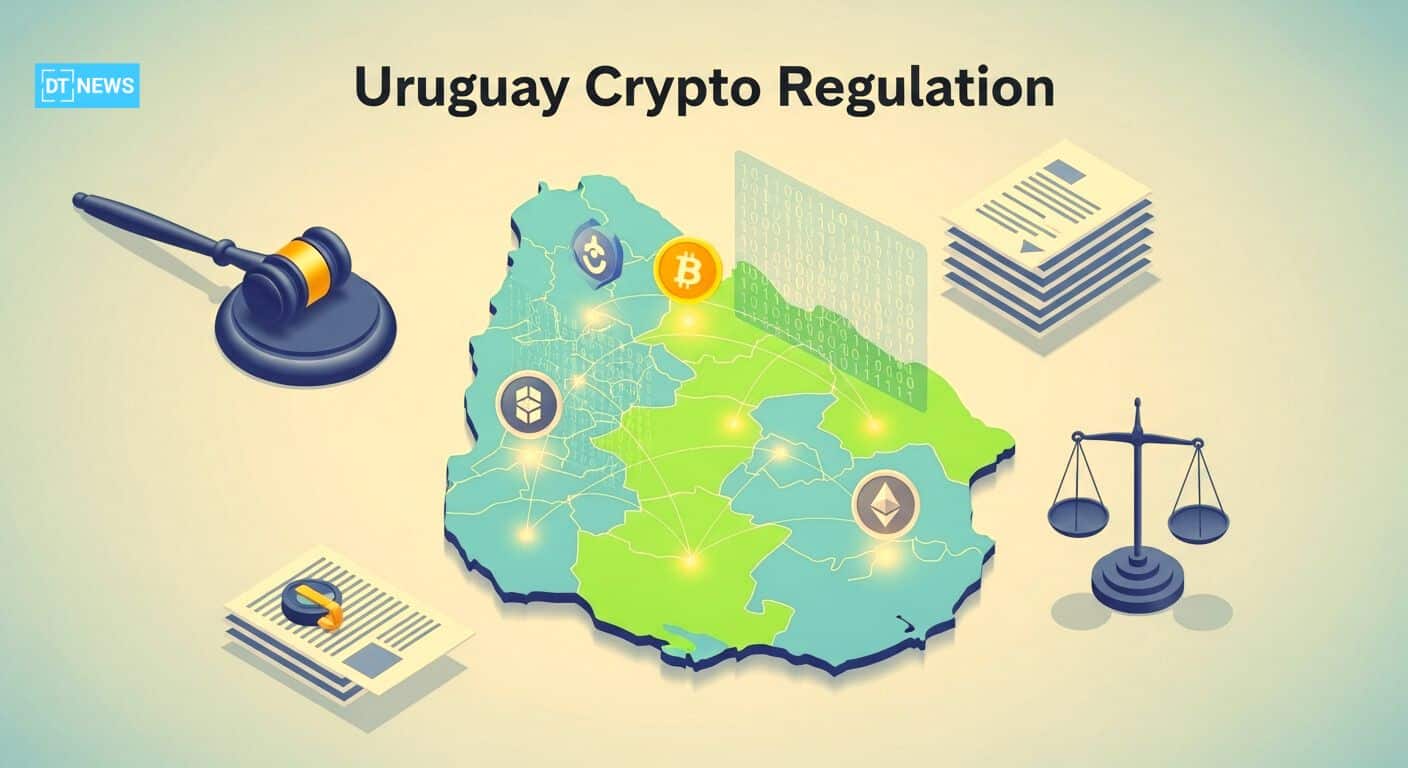Updated on 22nd October, 2025
This Article Was First Published on Deythere.
In Uruguay, a proposed draft is causing a major headache for the local crypto industry, with the Blockchain Chamber of Uruguay warning that the new rule would stifle innovation.
Startups warn that the new law could classify utility tokens and NFTs as financial assets and pile on a mountain of compliance costs.
As regulation starts to catch up with the wild west of decentralized finance (DeFi) and token-issuance, the debate on Uruguay crypto regulation shows just how dicey it is for lawmakers to balance being in control, letting innovation happen, and making sure every party is included.
The PSAV Draft: Right Idea, Wrong Implementation
The draft law in Uruguay wants to give the Central Bank of Uruguay (BCU) control over all virtual-asset service providers, and force them all to go through a single authorization process.
The Blockchain Chamber of Uruguay has complained that the language in the rule is ambiguous and restrictive. It is not clear what it means or how it will affect businesses, and that could lead to costly surprises down the line.
They’re also worried that the definition of “financial virtual asset” in the draft is far too broad, and could catch utility tokens and NFTs that aren’t really meant for financial purposes.
One of the biggest concerns is that this would mean they’d be subject to the same kind of strict compliance rules that apply to securities, which doesn’t seem right to industry players. They point to past Uruguayan payment-system models and call for a more nuanced approach.
To make matters worse, they think the consultation period was far too short, which means a lot of small firms and developers won’t have had time to figure out how this will affect them.
Tokens, NFTs, and Start-Ups: Why Classification Matters
The trouble in Uruguay’s crypto world is that the draft law doesn’t make it clear how digital assets should be classified and that is a big problem.
Under the proposed regime, something might be classed as a “financial virtual asset” if it stands for value, rights or is used for investment, and that could catch a lot of NFTs and utility tokens off guard.
These tokens, which are often used for things like access or governance rather than making a profit, might be subject to the same strict rules as securities.
The Blockchain Chamber argues that this is unfair on start-ups, who would have to spend a lot of time and money on compliance when they don’t need to.
One expert said that “the regulation aims to bring order, but its ambiguous definitions may lead to all sorts of problems”.
Start-Ups Get Caught in the Crossfire
The draft law also has some very worrying implications for start-ups in Uruguay. Not only will they have to go through the same authorization process as the big companies, but they also won’t be able to take advantage of a regulatory sandbox.
This means that they’ll have to innovate without the benefit of a controlled environment to test out their ideas.
A lot of domestic companies think that the above situation makes Uruguay less competitive in comparison to those jurisdictions with customized regulations or pilot-friendly frameworks.
Uruguay’s Position
Uruguay’s push to regulate virtual-asset service providers is a natural progression from earlier steps like Law 20,345 which gave the BCU the green light to supervise crypto-asset entities. In short, Uruguay had previously been without a law specifically for crypto assets, and proposed regulations have been kicking around for years.
This latest draft is part of the country’s effort to bring itself in line with global standards like the OECD’s Crypto-Asset Reporting Framework, while also providing more clarity around what’s what.
Though this Uruguay crypto regulation shows the country is keen on clarity and compliance, but the concerns raised are a good reminder that there’s a fine line between regulation and stifling innovation.
Conclusion
Uruguay’s draft crypto-asset regulation highlights the challenges that come with regulating digital finance in a way that lets innovation flourish rather than get stamped out.
This latest Uruguay crypto regulation is a great example of how broad token definitions, one-size-fits all authorization schemes and a lack of industry-friendly provisions can create hiccups for start-ups.
As Uruguay looks to the future of digital finance, the final shape of its law will have a clear impact on both local entrepreneurs and the overall architecture of the crypto ecosystem in Latin America.
Glossary
Virtual Asset Service Provider (PSAV): a firm that offers services like custody, exchange or transfer of virtual assets.
Utility Token: This is a token that lets users access a product or service, rather than making a financial return or investment.
Financial Virtual Asset: this is any digital asset used for investment or carrying counter-party risk.
Regulatory Sandbox:a controlled environment where innovators can test out new technologies under lighter regulation before they have to comply fully.
Token Classification: The process of figuring out how to categorize a token whether it’s a payment tool, a utility asset or a financial instrument.
Frequently Asked Questions About Uruguay Crypto Regulation
Why are Uruguay’s start-ups getting worried about the regulation?
Because they think that the broad definitions under the draft law might force utility tokens and NFTs into financial-asset compliance, which would raise costs and complexity for projects that aren’t designed to handle that.
What specific assets are at risk of getting caught up in the regulation?
According to the draft, “financial virtual assets” could include digital representations of value or contractual rights that are used for investment, which means NFTs or utility tokens could be swept up in this.
Did the law include a sandbox to play around with new ideas?
No, the Chamber criticized the lack of a regulatory sandbox, saying that early-stage start-ups need a safe space to experiment without breaking the law.
What’s the regulatory context here?
Uruguay passed Law 20,345 back in 2024, which gave the BCU the go-ahead to supervise virtual-asset entities. This latest draft is an extension of that, aiming to classify assets, regulate providers and impose licensing requirements.






































